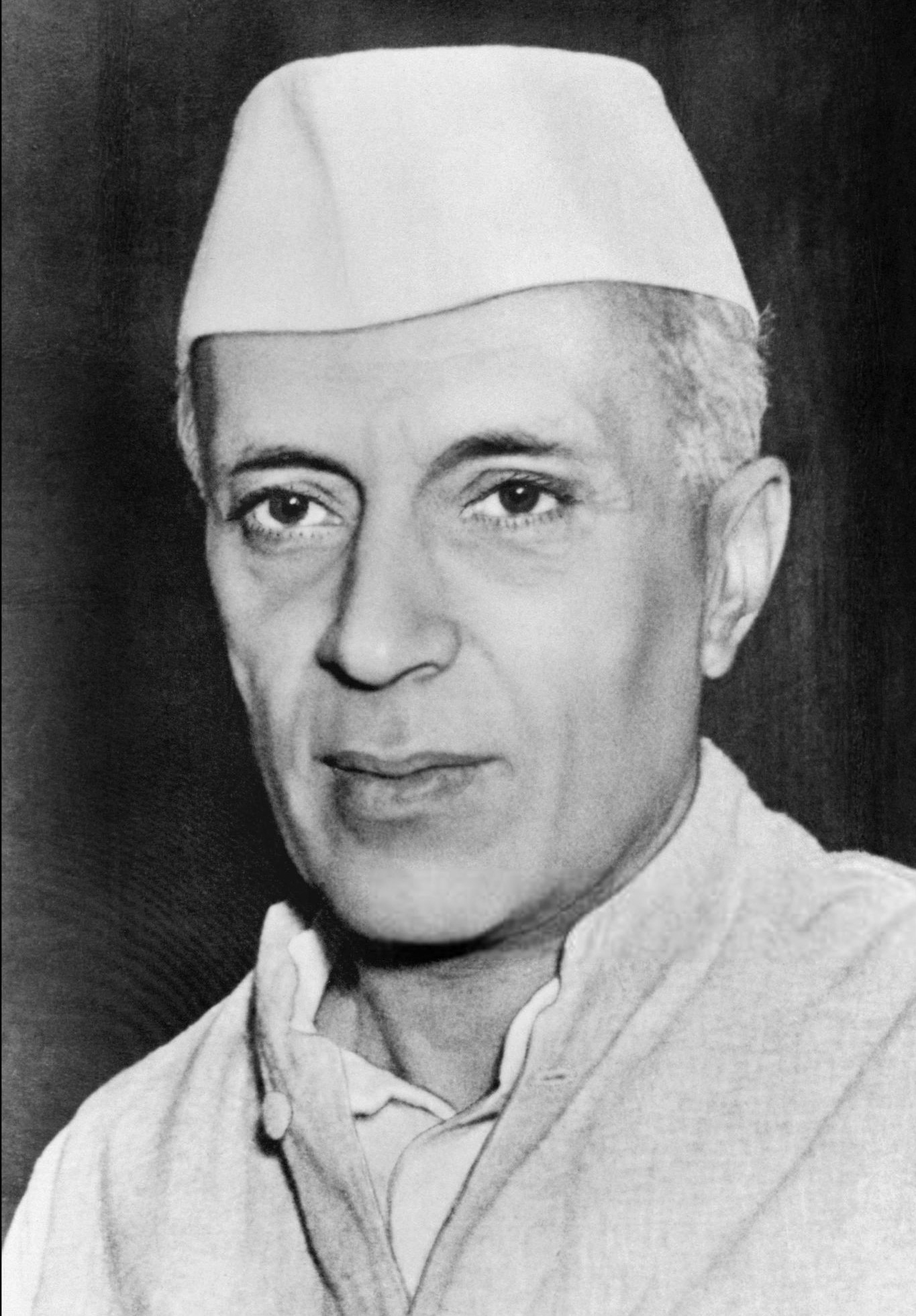Jawaharlal Nehru , também conhecido como Pandit Nehru ou Pandita Nehru, foi um estadista indiano, que foi o primeiro primeiro-ministro da Índia, desde 1947 até 1964. Líder da ala socialista no congresso nacional indiano durante e após o esforço da Índia para a independência do império britânico, tornou-se no primeiro-ministro da Índia na independência, de 15 de agosto de 1947 até sua morte.
Figura líder do movimento de independência indiano, Nehru foi eleito pelo Partido do Congresso para assumir o posto inaugural de primeiro-ministro da Índia independente, e reeleito quando Partido do Congresso ganhou a primeira eleição geral da Índia em 1952. Como um dos fundadores do Movimento Não-Alinhado, foi também uma figura importante na política internacional do pós-guerra.
Filho de um rico advogado e político indiano, Motilal Nehru, Nehru tornou-se um líder da ala esquerdista do Congresso Nacional Indiano, quando ainda bastante jovem. Ascendendo até tornar-se presidente do Congresso, sob a orientação de Mahatma Gandhi, Nehru foi um líder carismático e radical, defendendo a independência completa em relação ao Império Britânico. Na longa luta pela independência da Índia, em que foi uma peça chave, Nehru foi finalmente reconhecido como herdeiro político de Gandhi. Ao longo de sua vida, Nehru foi também um defensor do socialismo fabiano e do setor público como o meio pelo qual os desafios de longa data do desenvolvimento econômico poderiam ser abordados pelas nações mais pobres.
Wikipedia
✵
14. Novembro 1889 – 27. Maio 1964
